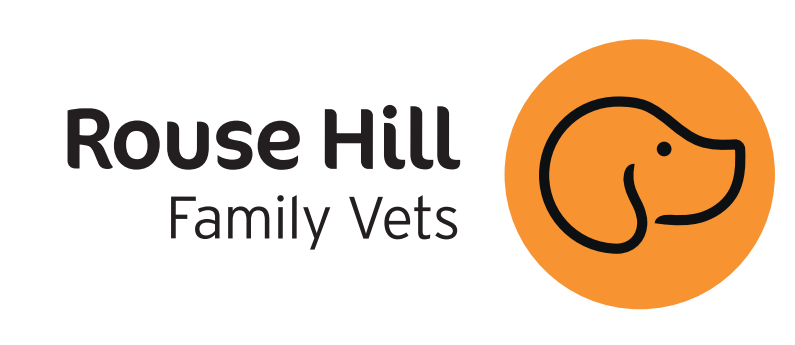
Kennel Cough, also known as Canine Cough, is a widespread health issue amongst Australian dogs, especially those kept in intensive kennel situations (such as boarding, shelters or dog shows) and highly social dogs that often visit dog parks, as well as dogs that live within multi-dog households.
What is Kennel Cough?
Kennel cough is an infectious bronchitis of dogs characterised by a harsh, hacking cough that most people describe as sounding like “something stuck in my dog’s throat.” Kennel cough can be uncomplicated and mild or may progress to a life threatening pneumonia depending on the dog’s immunological strength. The main two infectious agents are canine Parainfluenza virus and the bacteria Bordetella Bronchiseptica however there are other viruses that can also contribute to the symptoms including but not limited to canine adenovirus type 2 (also known as infectious canine hepatitis) and canine distemper.
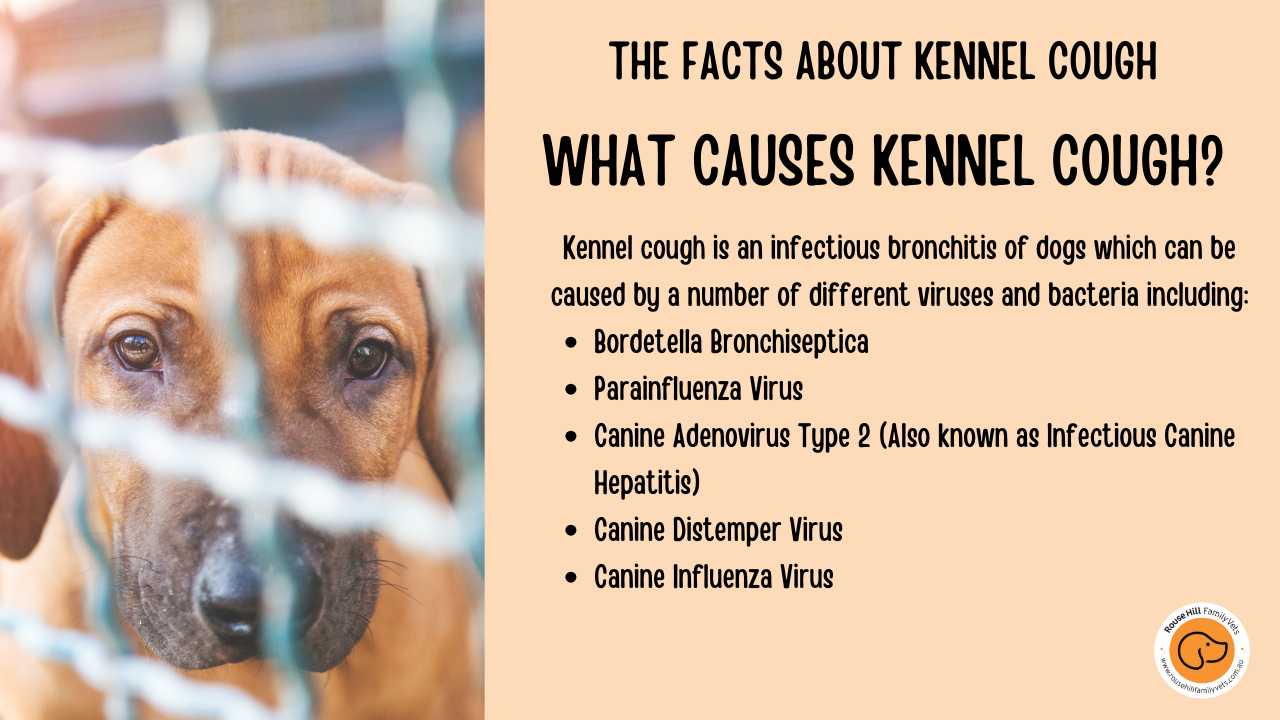
Clinical signs of Kennel Cough?
Signs usually consist of a dry hacking cough which can cause retching, fatigue and loss of appetite. In some cases, the infection can progress to pneumonia. The clinical signs of uncomplicated kennel cough are:
- Dry hacking cough with or without retching
- Ocular and nasal discharge
- Sneezing
- Eye & nasal discharge
- Otherwise well
Once your dog develops additional signs, this is when it is considered a complicated kennel cough and they are at increased risk of the infection developing into pneumonia. The signs to look out for are:
- Fatigue/lethargy
- Loss of appetite
- Fever
- Difficulty breathing
Dogs usually fully recover over 3 weeks, however your dog may continue to spread the infection for up to 14 weeks post infection.
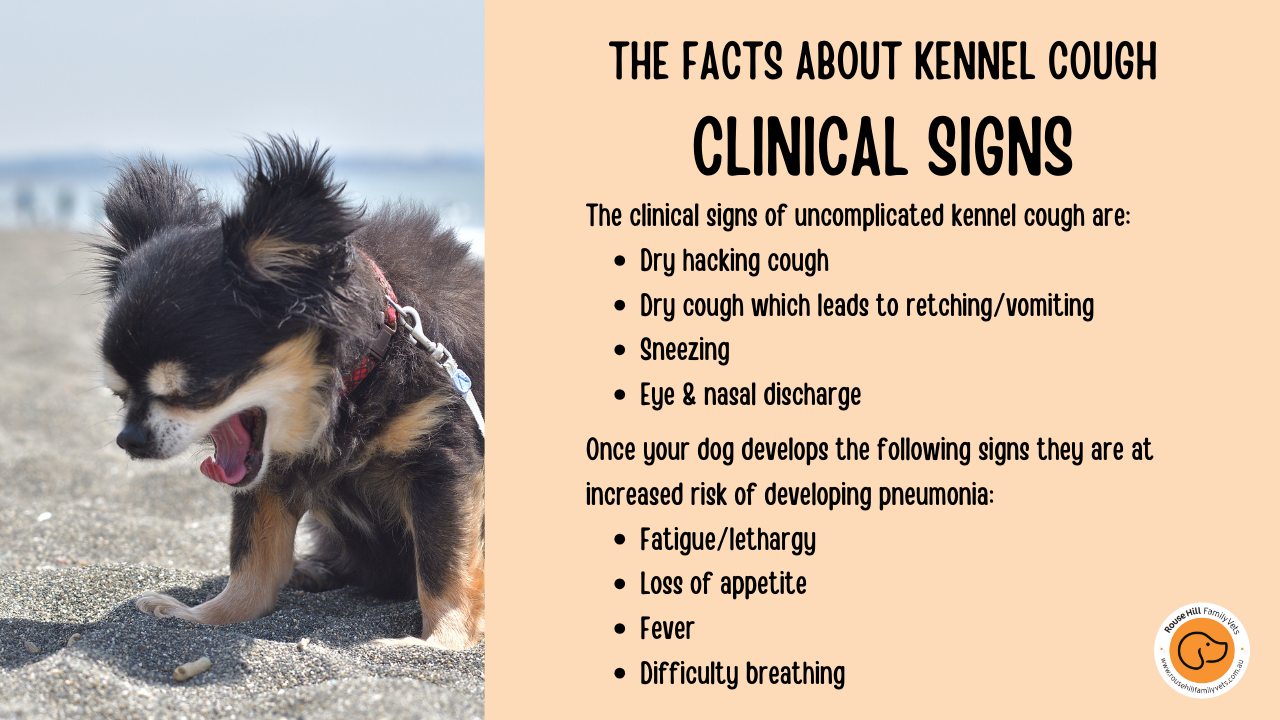
How is Kennel Cough spread?
Kennel cough is a highly contagious upper respiratory disease passed from dog to dog by coughing or sneezing or direct nose to nose contact, sharing infected water or food bowls or sniffing infected secretions on communal areas such as footpaths.
Classically, dogs get infected when they are kept in a crowded situation with poor air circulation and lots of warm air (e.g. a boarding kennel, obedience class, local park, animal shelter, grooming parlor). In reality, most causes of coughing that begin acutely in dogs are due to infectious causes and usually represent some form of kennel cough.
|
The incubation period is 2 to 14 days. Dogs are typically sick for 1 to 2 weeks and infected dogs can shed Bordetella organisms for 1 to 3 months following infection. |
How is Kennel Cough diagnosed and treated?
Kennel cough is generally diagnosed based on patient history (exposure to a crowd of dogs within the proper time frame) plus typical physical examination findings (coughing dog that is otherwise well). If your dog is also showing signs of poor appetite, fever and/or listlessness we will need to evaluate them for pneumonia which involves performing chest radiographs, blood testing and/or a respiratory PCR panel. PCR tests for the presence of DNA from the common pathogens that cause kennel cough.
Uncomplicated kennel cough is generally self limiting and will go away on its own. Some patients require cough suppressants to improve their comfort whilst the infection is resolving. Affected dogs should be clearly improved, if not recovered after approximately one week. That said, given that often more than one infectious agent is involved in kennel cough and some cases of minor bronchitis can progress to pneumonia, which is potentially life-threatening, antibiotics are frequently prescribed to patients to prevent or treat pneumonia before hospitalization is required.
For this reason it is important to distinguish an uncomplicated case of kennel cough from one complicated by pneumonia for obvious reasons. Uncomplicated cases will NOT have fever or appetite loss, nor will they be listeness. They will seem completely normal except for coughing. Dogs with pneumonia appear sick.
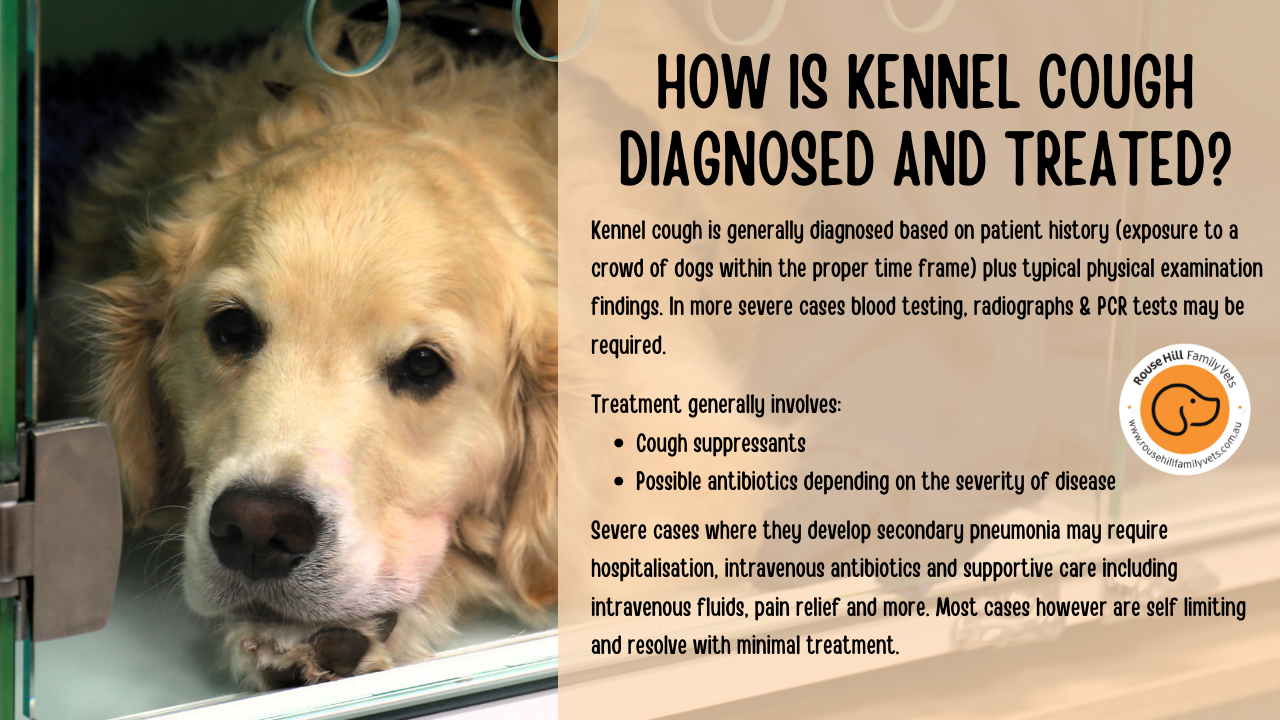
How can I protect my puppy/dog against Kennel Cough?
Vaccination is available for Bordetella bronchiseptica, canine adenovirus type 2 (also known as infectious canine hepatitis), canine parainfluenza virus and canine distemper. Infection with other members of the kennel cough complex cannot be prevented. Vaccination is the most effective way of protecting your puppy or dog from kennel cough. Unfortunately vaccination is not 100% protective. Despite this, we still recommend ensuring your puppy or dog receives appropriate vaccination which includes kennel cough, generally a C5 or C7 vaccination and then an annual kennel cough booster. Book your puppy/dog vaccination HERE.
In addition to vaccinations we also recommend:
- Avoiding contact with other dogs who are not fully vaccinated and not well
- Choose establishments and training programs that require up-to-date vaccinations, health examinations, good hygiene and isolation of sick puppies and dogs – Our puppy preschool is a safe space to socialise your puppy.
- Keep your dog away from coughing dogs
- Keep your dog away from other dogs when sick, including other dogs within your home
- Avoid contact with known infected dogs and their premises
- Never allow your puppy or dog to drink from communal water bowls or eat from communal food bowls.
- If you’ve been in contact with dogs with or exposed to kennel cough, avoid handling other dogs or wash your hands and change your clothes before doing so.
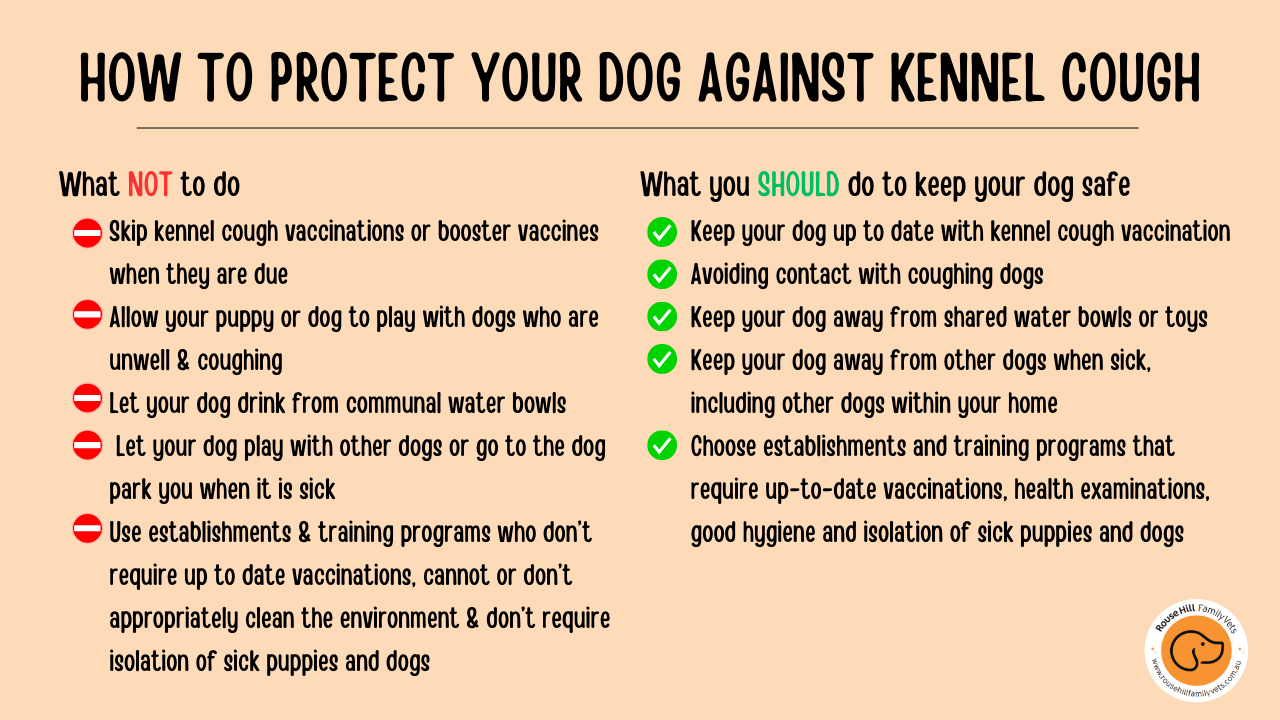
Vaccination is not useful in a dog already incubating kennel cough
Bordetella bronchiseptica vaccination may not prevent infection. In most cases, vaccination will minimise the symptoms of illness but does not entirely prevent infection. This is true regardless of the type of vaccination used (nasal, oral or injectable).
Dogs that have recovered from Bordetella bronchiseptica are typically immune to reinfection for 6 to 12 months.
For more information regarding the vaccines we offer and costing CLICK HERE.
